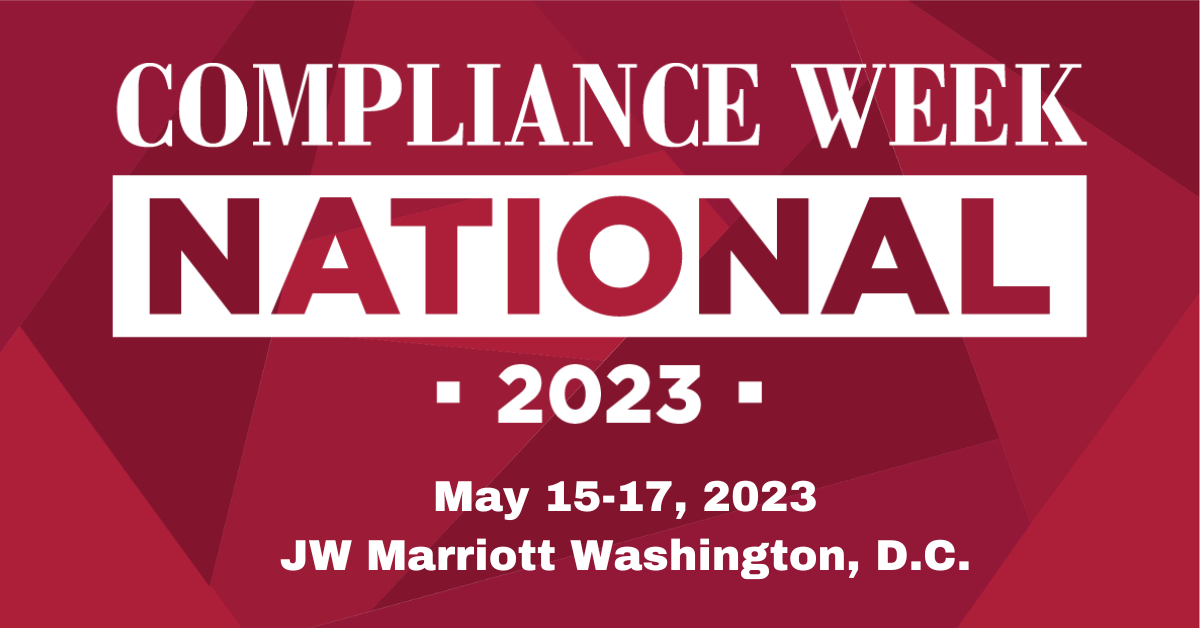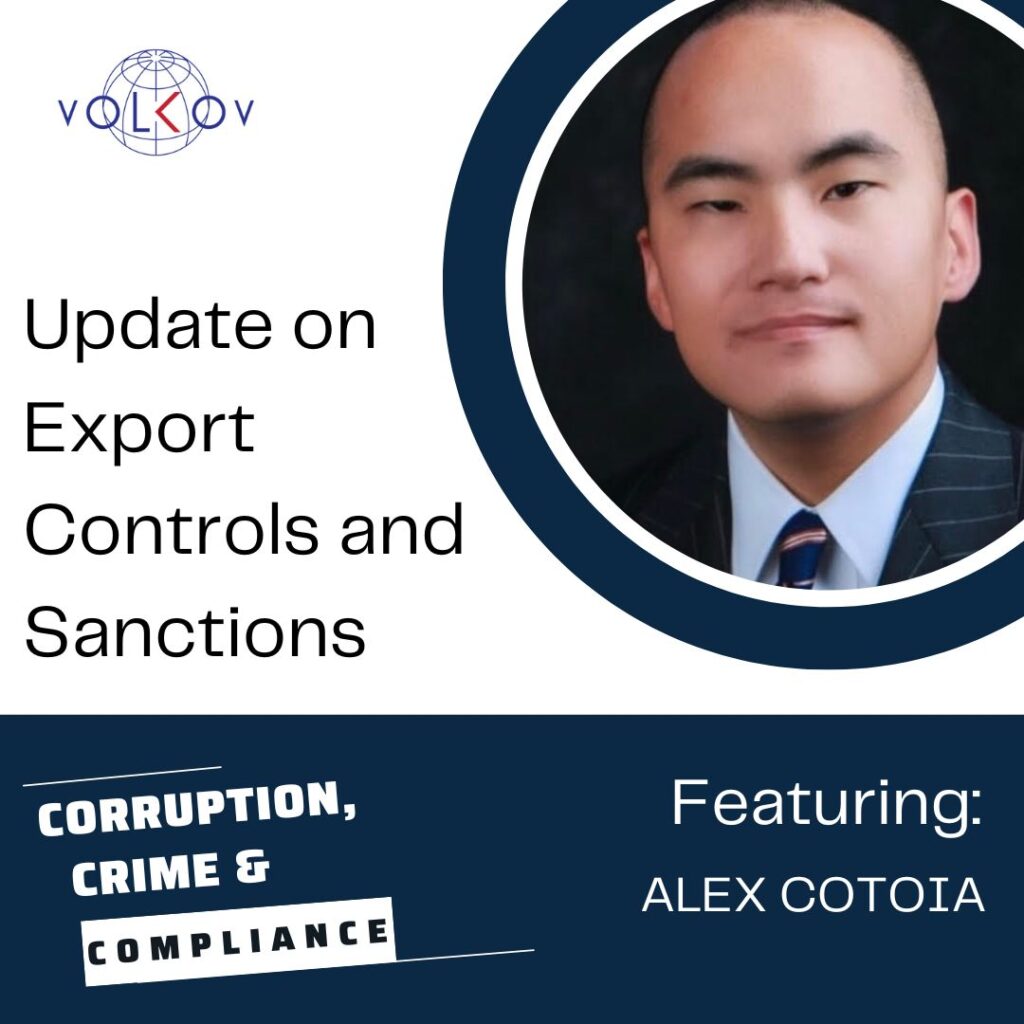After the Russian invasion of Ukraine, the world of business will never be the same again. Deputy Attorney General (DAG) Lisa Monaco recently said that the world’s “geopolitical landscape is more challenging and complex than ever. The most prominent example is of course Russia’s invasion of Ukraine.” It is “nothing less than a fundamental challenge to international norms, sovereignty and the rule of law that underpins our society.” This is even more so in the current business climate.
Over this five-part series, I will consider how business will never again be the same and how a confluence of events of events has changed business forever. I am joined in this exploration by Brandon Daniels, Chief Executive Officer (CEO) of Exiger. We will explore the irrevocable changes in Supply Chain, trade and economic sanctions, anti-corruption, cyber-security and environmental, social and governance (ESG). In Part 2, we continue to explore the changes wrought by the Russian invasion of Ukraine, in the realm of economic and trade sanctions.
According to Daniels, one of the keys on the nature of sanctions on punitive economic activities, is to endure that you are having the right impact and through a set of comprehensive sanctions. You must do so while “making sure that you’re not hurting your allies and partners that can help unwind some of these undesirable or intolerable geopolitical situations.” This means that when thinking about economic sanctions, it is not simply a consideration of the implemented economic sanctions; it is a broader consideration of “a comprehensive set of economic and trade policies that have been codified into legislation, through regulation and rulemaking, that set the tone for sanctions in the future sanctions and economic prohibitions in the future.”
Two precursors to the development of the US economic and trade sanctions response to the Russian invasion of Ukraine were the increase in economic and trade sanctions utilized by the Trump Administration and, most significantly, the passage of the National Defense Authorization Act on January 1, 2020, which included the Anti-Money Laundering (AML) Law of 2020. This was the first update of federal AML laws since the Patriot Act was passed in the wake of 9/11. Both of these seemingly disparate developments set the stage so that Russia invaded Ukraine and the Biden Administration, along with most western democracies, came down levying economic and trade sanctions in very short order against certain Russian individuals, Russian companies and against Russia itself.
The US government had also been ramping up its economic and trade sanctions enforcement over the past several years. DAG Monaco has said that three such cases have led to over $1 billion in fines and penalties alone over the past 10 years, adding “so we’re by no means starting on a blank canvas.” However, “what you have seen in the last few months is something completely different…The scope of the sanctions imposed on Russia by the United States and its allies and partners are of a new order of magnitude…We are pouring resources into sanctions enforcement, and you have seen and will continue to see results.” Indeed, she categorized economic and trade sanctions enforcement as “the new FCPA.” But it’s not just the war in Ukraine that has prompted a new level of intensity and commitment to sanctions enforcement. We have turned a corner in our approach. Over the last couple of months, I’ve given notice of that sea change by describing sanctions as “the new FCPA.”
Daniels noted that these new rounds of sanctions based upon the Russian invasion of Ukraine are actually broader and more comprehensive because they strive to get at the root of an issue, which is intelligence gathering by state and non-state actors from US businesses. He pointed to the examples of the Chinese companies ZTE Corporation and Huawei Technologies Co., Ltd., which are subject to bans from the Federal Communications Commission (FCC) but who still might be suppling chips to suppliers down your supply chain and more nefariously using those chips to engage in intelligence gathering and industrial espionage.
The economic and trade sanctions, put in place before the Russian invasion of Ukraine and those levied thereafter, are designed to not simply punish Russia but also interdict their ability to wage war. This means sanctions will be used to disrupt the Russian ability to fund the war through its banking sectors. Yet another set of reasons are to change non-democratic and unethical behaviors by making the cost to engage in these behaviors so high through economic and trade sanctions.
One of the most interesting consequences in the area has been the increase in and much more highly publicized increase in whistleblowers. Once again, the AML Law of 2020 set the stage for this by including a bounty provision that any person or entity involved in reporting an economic and trade sanctions violation would be eligible for up to 30% bounty on any recovery. Perhaps the most visible byproduct of this has been the worldwide hunt for the multi-million up to billion-dollar yachts of Russian oligarchs. Whistleblowers and bounty hunters are actively looking for these yachts to turn their locations over to American authorities who can seize them.
But these seizures are only one step. As Daniels noted, because the AML Law of 2020 also helps uncover the companies who own these yachts and the companies who own those companies. In other words, transparency. Here one only need to think of the Panama Papers, the Pandora Papers and the Paradise Papers to understand why the light of day is the best disinfectant for enforcing economic and trade sanctions.
Once again, as with supply chain, the government is now looking for businesses to help in this fight. The US government has enlisted the private sectors as key partners in the implementation of economic and trade sanctions to allow the US government “to go after those who profit from corruption and crime around the world — whether they are sanctions-evading oligarchs or office-holding bribe recipients. Working with our partners, we can ensure that corrupt regimes will be held responsible — whether we’re seizing yachts or freezing slush funds.”








